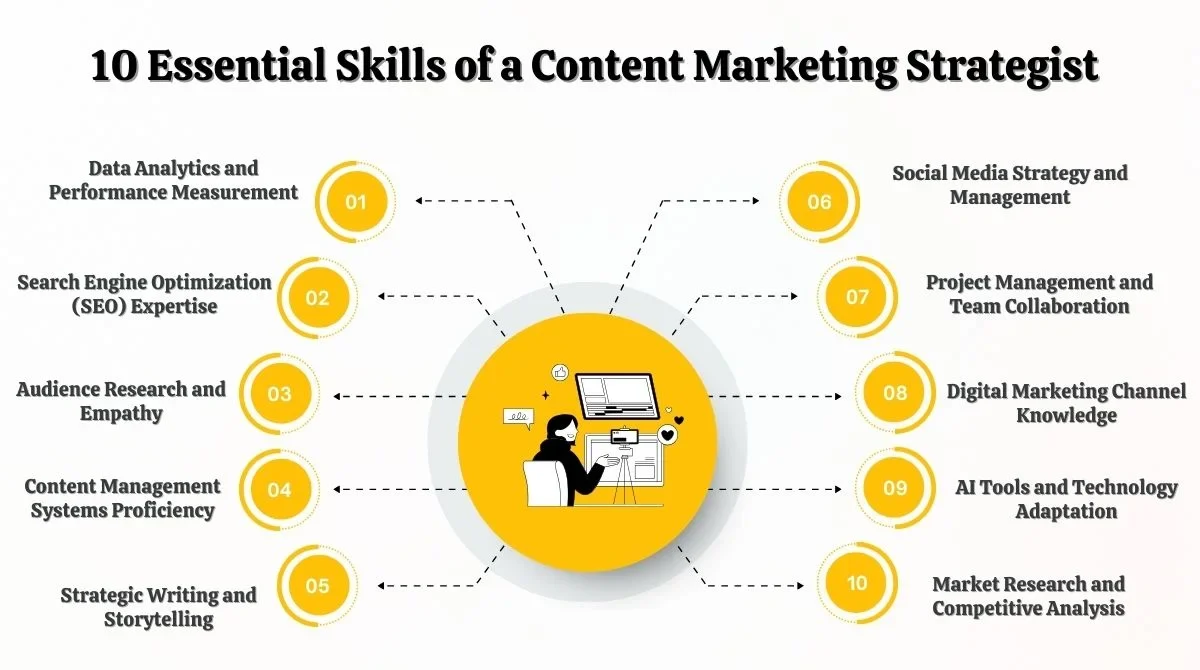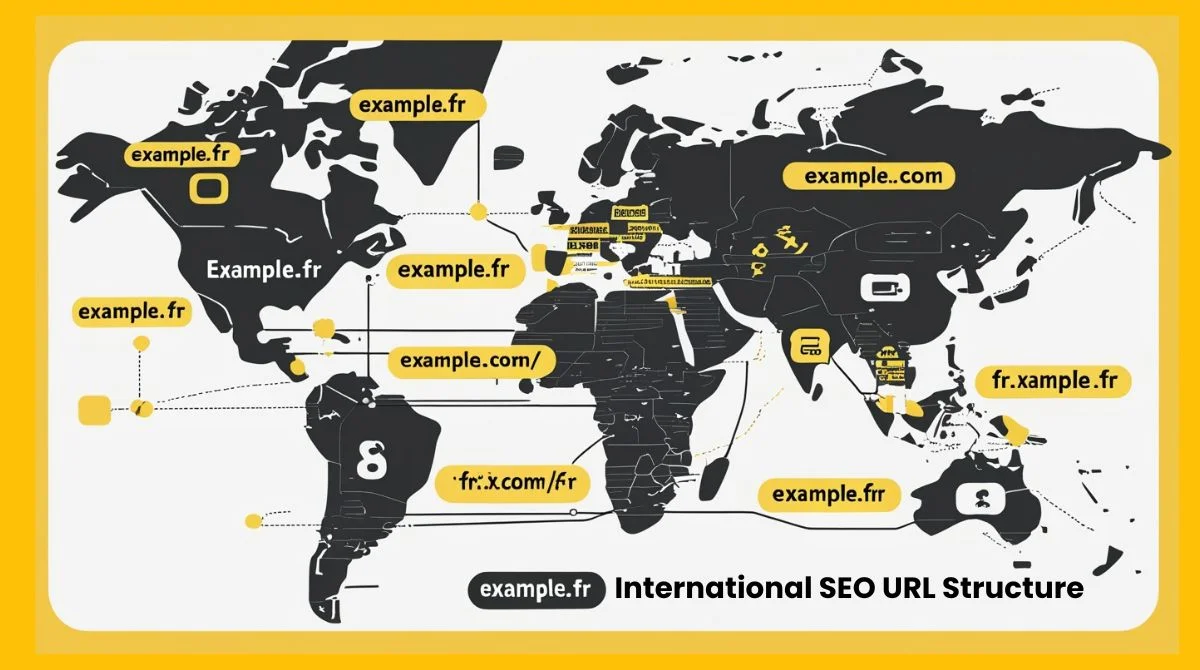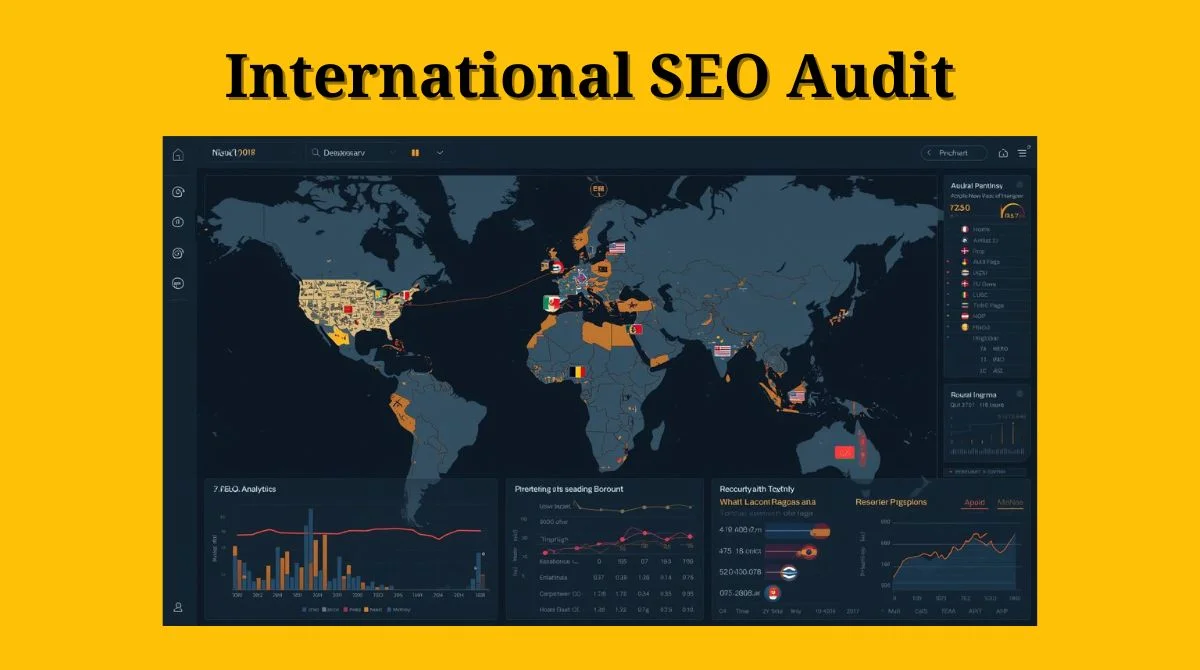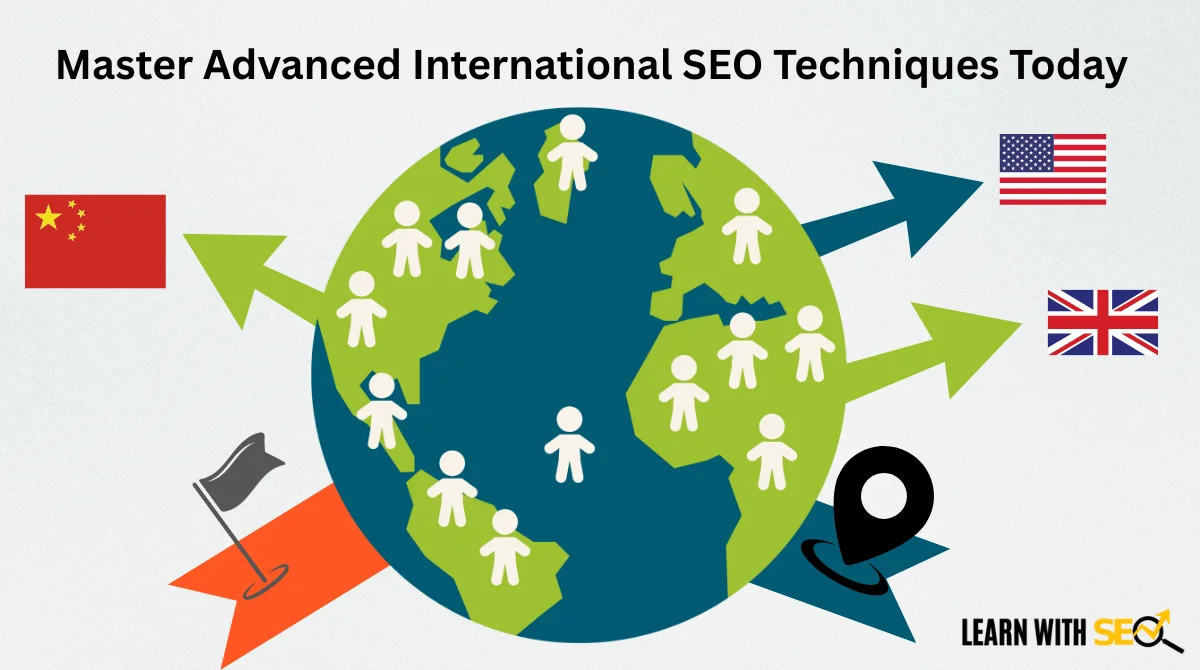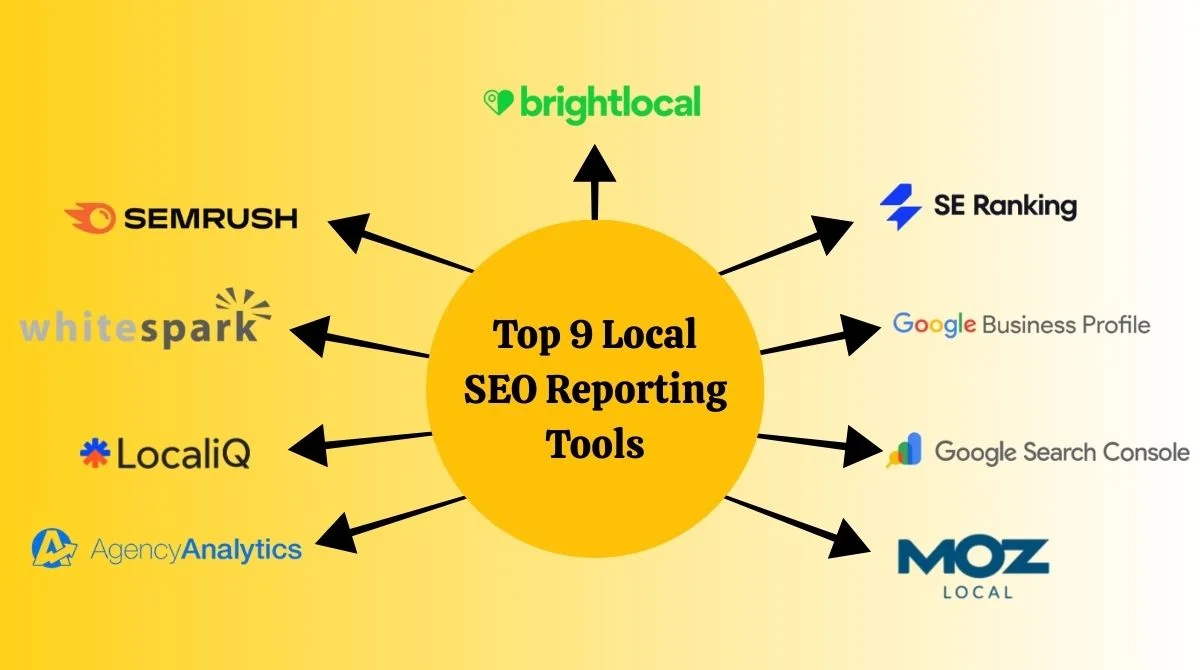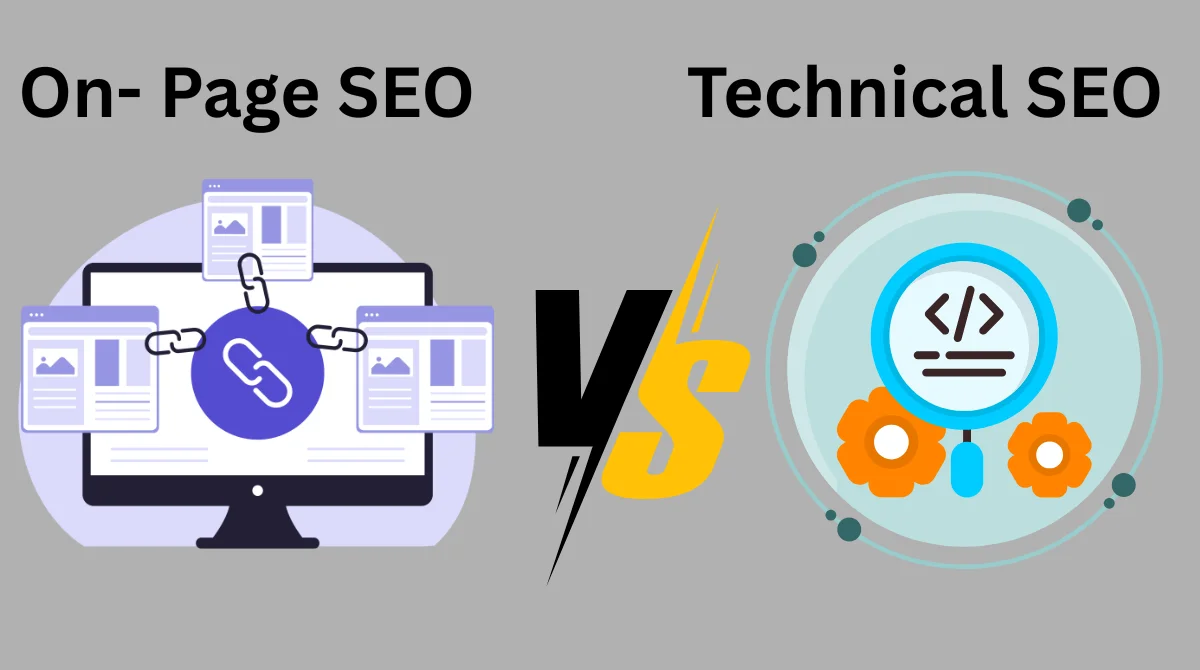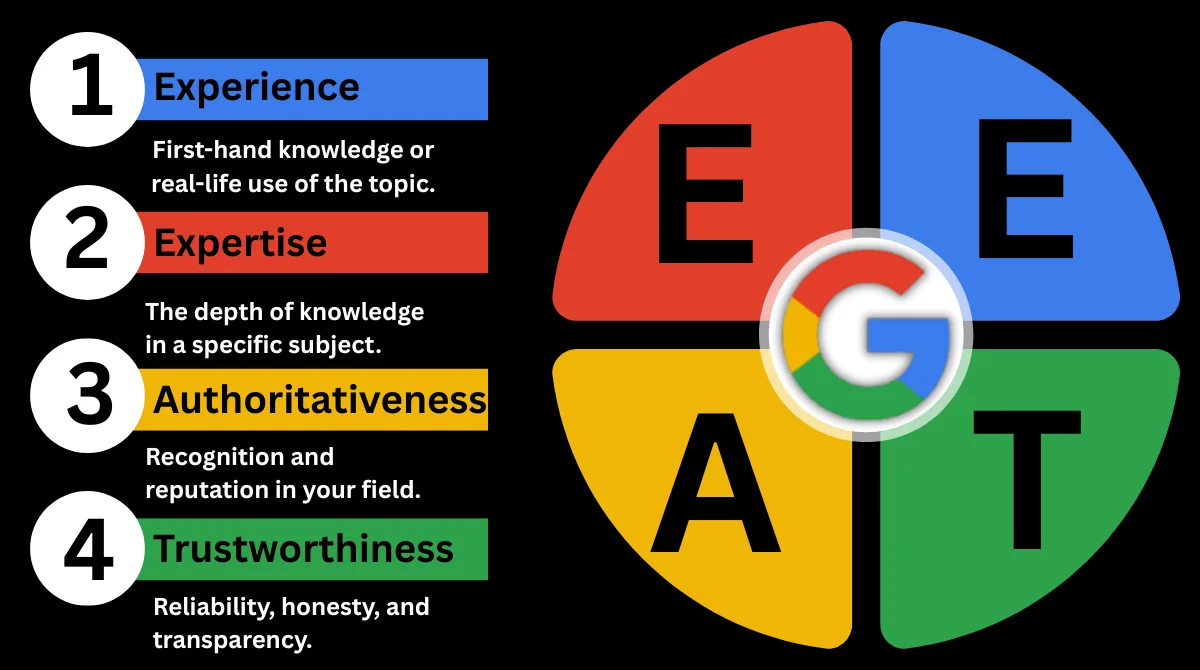- What Does a Content Marketing Strategist Do?
- 1. Data Analytics and Performance Measurement
- 2. Search Engine Optimization (SEO) Expertise
- 3. Audience Research and Empathy
- 4. Content Management Systems (CMS) Proficiency
- 5. Strategic Writing and Storytelling
- 6. Social Media Strategy and Management
- 7. Project Management and Team Collaboration
- 8. Digital Marketing Channel Knowledge
- 9. AI Tools and Technology Adaptation
- 10. Market Research and Competitive Analysis
- Building Your Career as a Content Marketing Strategist
- The Future of Content Marketing Strategy
- Conclusion
A content marketing strategist plays a crucial role in driving brand awareness and customer engagement. These professionals develop and execute content strategies using multiple marketing channels, overseeing everything from content planning to SEO optimization.
The role has evolved significantly in recent years. Today’s content marketing strategist must combine creative thinking with data-driven insights to create compelling campaigns that resonate with target audiences.
What Does a Content Marketing Strategist Do?
A content strategist takes on tasks like analyzing data, creating editorial calendars, and collaborating with marketing team members to focus on specific projects. They bridge the gap between creative content creation and strategic business objectives.
The modern content marketing strategist works across multiple platforms. They ensure every piece of content serves a specific purpose in the customer journey while maintaining brand consistency.
1. Data Analytics and Performance Measurement
Understanding data is fundamental for any content marketing strategist. They monitor key marketing metrics to assess the impact of their work, maximizing content reach and impact while staying within budget.
Key analytics skills include:
- Google Analytics proficiency.
- Conversion tracking and attribution.
- ROI measurement and reporting.
- A/B testing implementation.
The ability to monitor project development and adjust according to Google Analytics analysis, A/B testing, and data analytics has become essential. This skill helps optimize content performance continuously.

2. Search Engine Optimization (SEO) Expertise
SEO knowledge is non-negotiable for content marketing strategists. Proficiency in SEO tools and understanding SEO principles are essential requirements for the role.
Modern SEO for content strategists involves:
- Keyword research and implementation.
- Technical SEO understanding.
- Content optimization for search engines.
- Local SEO strategies.
With Google’s AI Overview feature introduced in May 2024, content marketers must adapt their strategies to appear in AI-powered search results. This requires creating content that directly answers user queries.
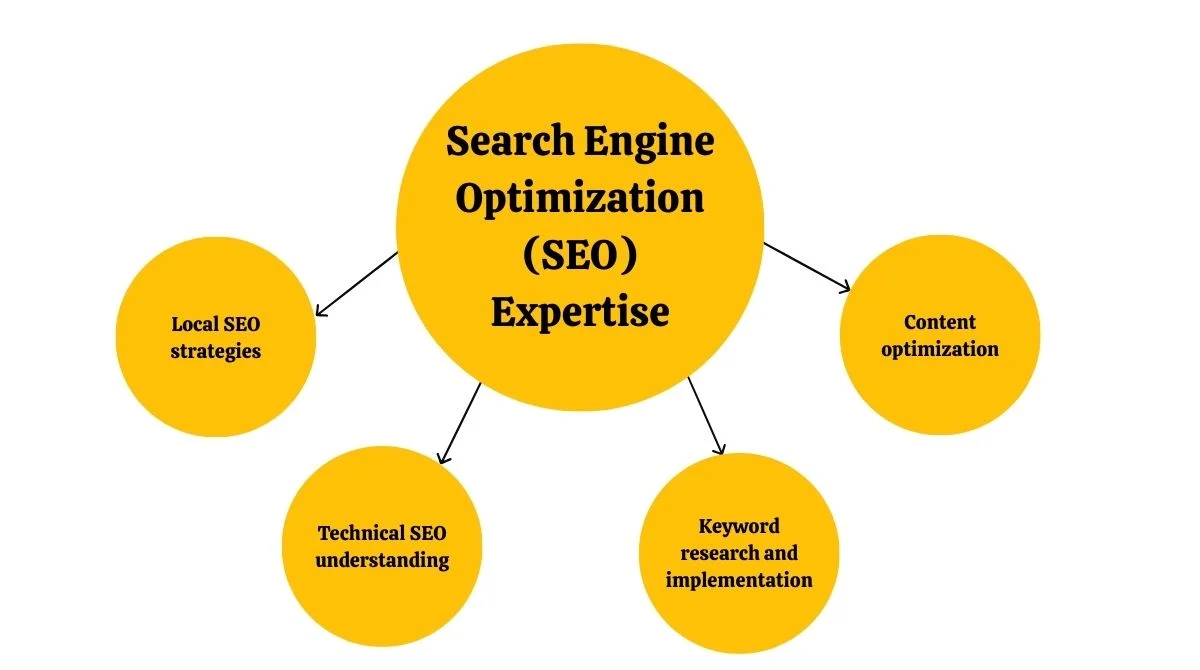
3. Audience Research and Empathy
Understanding your audience and creating content specifically tailored to them requires empathy. Your content should stay relevant and capture the interest of your audience.
Successful audience research includes:
- Creating detailed buyer personas.
- Understanding customer pain points.
- Mapping content to customer journey stages.
- Conducting surveys and interviews.
To create a winning content plan, first identify your audience’s struggles, preferences, and expectations. This understanding drives content decisions.

4. Content Management Systems (CMS) Proficiency
Proficiency in content management systems is a core requirement for content strategists. Technical skills enable efficient content creation and publication workflows.
Essential CMS skills include:
- WordPress, Drupal, or proprietary CMS platforms.
- Content scheduling and automation.
- Multi-channel publishing capabilities.
- Version control and workflow management.
Modern content strategists often work with headless CMS solutions. These systems provide flexibility for omnichannel content distribution.
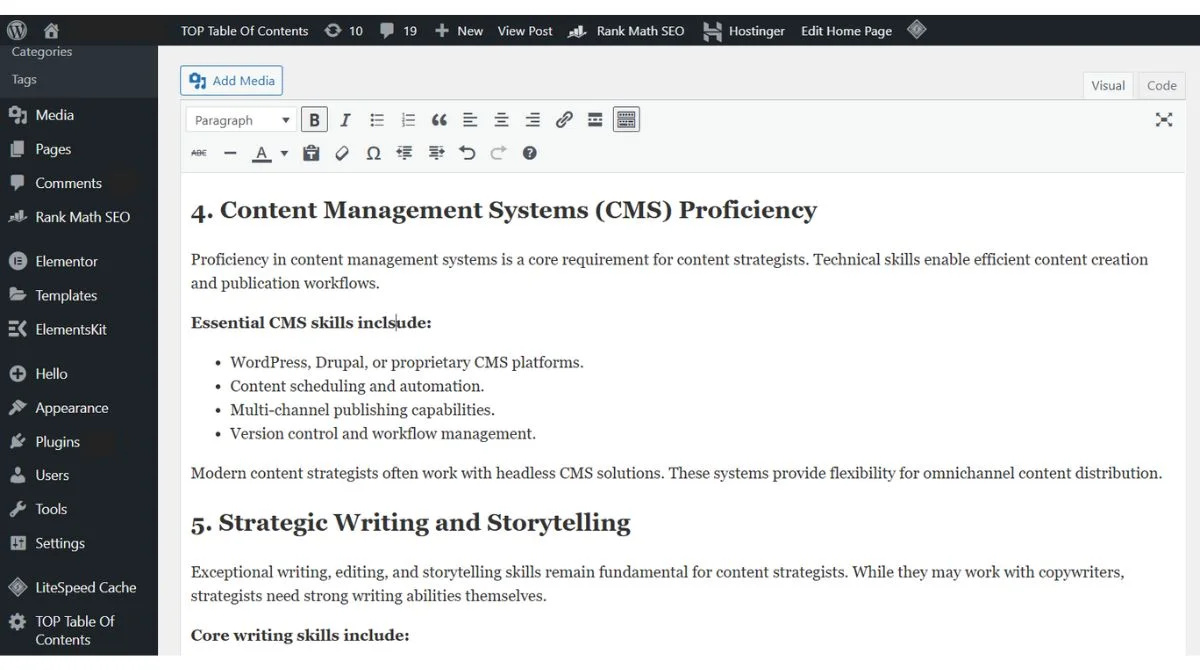
5. Strategic Writing and Storytelling
Exceptional writing, editing, and storytelling skills remain fundamental for content strategists. While they may work with copywriters, strategists need strong writing abilities themselves.
Core writing skills include:
- Brand voice development and consistency.
- Storytelling across different formats.
- Content adaptation for various channels.
- Editorial oversight and quality control.
Content strategists who maintain their writing abilities are better positioned to collaborate with various team members. This collaboration improves overall content quality.
6. Social Media Strategy and Management
Content strategists oversee social media content, production, and distribution across multiple platforms. Social media expertise extends beyond posting content.
Key social media skills include:
- Platform-specific content optimization.
- Community management principles.
- Social media advertising basics.
- Influencer collaboration strategies.
Understanding social media metrics is essential for creating effective campaigns that resonate with target audiences. Each platform requires tailored approaches.
7. Project Management and Team Collaboration
Content strategists collaborate with other marketing team members to focus on specific projects. Strong project management skills ensure timely content delivery.
Essential project management abilities:
- Editorial calendar creation and management.
- Cross-functional team coordination.
- Resource allocation and budgeting.
- Deadline management and prioritization.
Vendor management skills help content strategists work effectively with partners, vendors, and agencies. This collaboration expands content capabilities.
8. Digital Marketing Channel Knowledge
A strong understanding of digital marketing channels and best practices is required for content strategists. This knowledge ensures content supports broader marketing goals.
Important channels include:
- Email marketing integration.
- Paid advertising support.
- Content syndication strategies.
- Marketing automation platforms.
Unlike general marketers, strategists ensure every campaign is backed by data insights, market trends, and customer behavior analysis. This approach maximizes performance across channels.

9. AI Tools and Technology Adaptation
AI skills have become essential for marketers in 2025. Content marketing strategists must embrace AI tools while maintaining human creativity.
Key AI applications include:
- Content idea generation and research.
- Automated content optimization.
- Personalization at scale.
- Performance prediction and analysis.
AI in Search is unlocking new brand opportunities in AI Overviews and AI Mode. Content strategists must optimize for these new search features.
10. Market Research and Competitive Analysis
Market research and competitive analysis form the foundation of strategic content marketing. Understanding the competitive landscape informs content positioning.
Research skills encompass:
- Industry trend analysis.
- Competitor content auditing.
- Market opportunity identification.
- Consumer behavior insights.
Marketers need to cultivate relentless curiosity about their audience, delving deep into cultural forces that shape preferences. This curiosity drives innovative content strategies.
Building Your Career as a Content Marketing Strategist
To get a job as a content strategist, you’ll need a bachelor’s degree in marketing, English, or communications. However, practical skills often matter more than formal education.
Career development steps:
- Build a portfolio showcasing diverse content projects.
- Gain experience with analytics and SEO tools.
- Develop expertise in specific industries or niches.
- Obtain relevant certifications in digital marketing.
Entry-level digital content strategists should focus on honing skills in content management systems and effective communication with cross-functional teams. These foundational skills support career growth.
The Future of Content Marketing Strategy
The content marketing strategist role continues evolving rapidly. SEO and content strategy in 2026 won’t be just about tactics but will demand strategy, tech fluency, and human insight.
Emerging trends include:
- AI-human collaboration in content creation.
- Voice search optimization strategies.
- Interactive and immersive content formats.
- Sustainability and purpose-driven messaging.
Success requires continuous learning and adaptation. The best content marketing strategists combine technical expertise with creative vision and strategic thinking.
Conclusion
These 10 essential skills form the foundation of a successful content marketing strategy. From data analytics to AI tool proficiency, today’s content marketing strategist must master diverse competencies. The role demands both creative and analytical thinking. By developing these skills systematically, aspiring content marketing strategists can build rewarding careers in this dynamic field. Focus on building practical experience alongside theoretical knowledge. The combination of strategic thinking, technical skills, and creative execution defines exceptional content marketing strategists in 2025.

